Petrochemicals Microbial Control Automotive 31-08-2021 - Arhive
Petrochemicals Microbial Control Automotive
Crude Oil Prices Trend
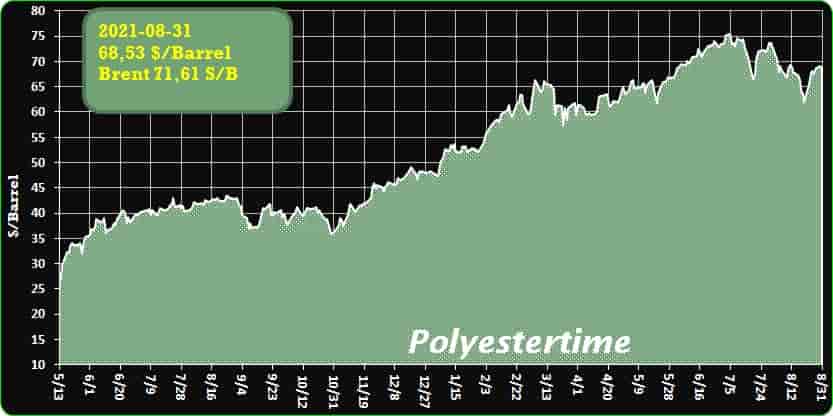
-Invista doubles nylon capacity in China – again
Company anticipates that the country will account for more than half of the total production and consumption of nylon in the Asia-Pacific region.
Invista Nylon Chemicals (China) is to double its current nylon 6.6 polymer production at the Shanghai Chemical Industry Park (SCIP).
Following a 40,000-ton per year capacity increase in 2020, this new increased production, with an investment of 1.5 billion RMB (US$230 million US), will double the plant capacity to an annual 400,000 tons and strengthen Invista’s integrated nylon 6.6 value chain in China.
The new capacity will also enable Invista to more quickly respond to the growing demand for engineering plastics in automotive, electrical and electronics and other application fields.
The need for nylon 6.6 polymer has risen dramatically in recent years. The estimated compound annual growth rate for nylon 6.6 through 2029 is approximately 2% globally and 4% for China.
Invista anticipates that the country will account for more than half of the total production and consumption of nylon in the Asia-Pacific region and is shortly expected to become the world’s largest nylon consumer.
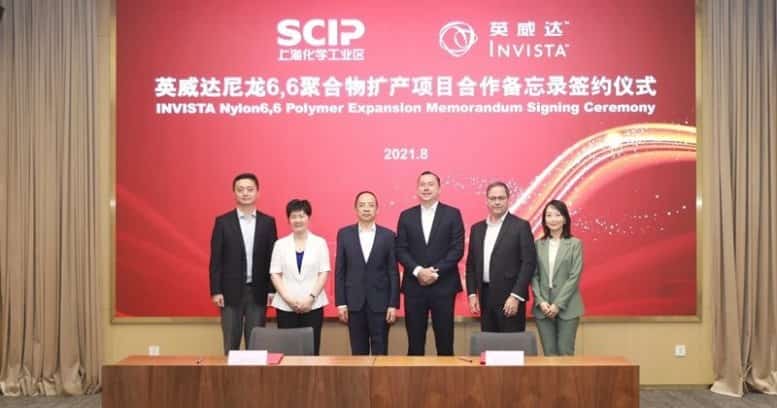
-Explainer: Why Singapore’s plastic recycling rate is so low and what can be done to raise it
- At 4 per cent, Singapore’s plastic recycling rate is the lowest compared to other waste streams
- A study is underway on whether Singapore should have a recycling facility for plastic bottles Petrochemicals Microbial Control Automotive
- Aside from infrastructure, experts said public education is still lacking on how to recycle plastic and what plastic can be recycled
- However, they said reducing plastic consumption is still the best answer to tackling plastic waste
A week ago, the National Environment Agency (NEA) launched a study looking at whether Singapore should have its first recycling facility dedicated to only plastic bottles in an effort to boost plastic recycling rates here.
Right now, the recycling rate for plastic bottles is at 4 per cent — the lowest here among other waste streams such as metal and paper.
The idea to have a dedicated recycling facility for plastic bottles was mooted by the Plastics Recycling Association of Singapore, a new organisation that was launched last Tuesday (Aug 17). Petrochemicals Microbial Control Automotive
The association aims to raise the recycling rate of plastic waste to 30 per cent in the next five years, and then up to 70 per cent in the next 10 years.
Along with building the polyethylene terephthalate (PET) bottle-to-bottle recycling plant, it seeks to do so by setting up a Plastics Recycling Centre of Excellence, which will develop recycling solutions for the region.
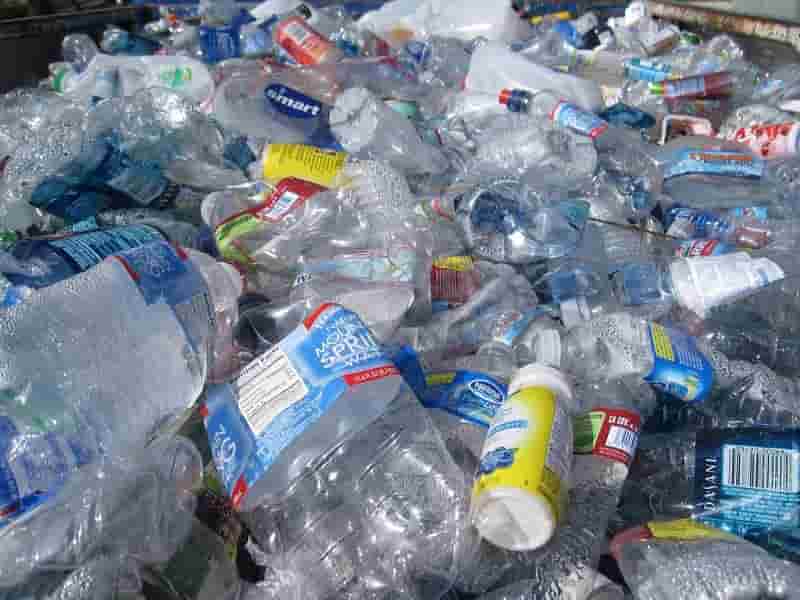
-LANXESS to acquire IFF’s microbial control business
LANXESS to become one of the world’s largest suppliers of microbial control products
Strengthening the specialty chemicals portfolio: expansion of the growth areas disinfection, personal care and material protection
Acquisition with approximately USD 450 million* in sales and around USD 100 million* in EBITDA Petrochemicals Microbial Control Automotive
Attractive synergies: additional EBITDA contribution of around USD 35 million within four years
Purchase price of around USD 1.3 billion
Closing of transaction expected in Q2 2022
Consumer Protection to become the Group’s strongest segment
LANXESS intends to take over the microbial control business of the U.S. group International Flavors & Fragrances Inc. (IFF) which will make the specialty chemicals company one of the world’s largest suppliers of microbial control products.
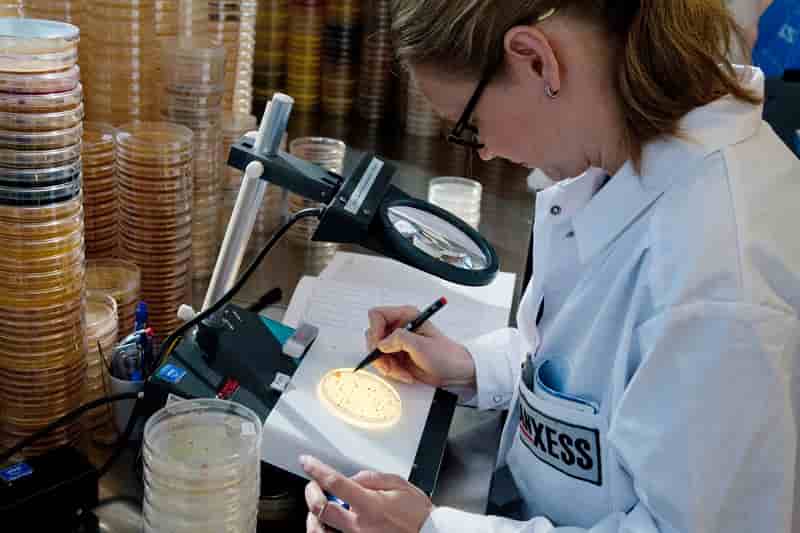
-Japan’s Mitsui Bussan I-Fashion & Nippon to merge textile businesses
Japan-based Mitsui & Co Ltd has announced that its core business company in the fashion and textiles business Mitsui Bussan I-Fashion Ltd (MIF) and Nippon Steel Trading Corporation (NST) will conclude an agreement regarding the merger between MIF and NST’s textile businesses, a shareholders’ agreement and conclude an absorption-type split agreement. Petrochemicals Microbial Control Automotive
The absorption-type split will be implemented with NST as the splitting company and MIF as the succeeding company. The merger will be effective from January 1, 2022 (tentative), the two companies said in a joint media release.
MIF will issue and allocate 4,133 new shares of MIF to NST as compensation for the split. As a result, Mitsui and NST will each hold a 50 per cent stake in the succeeding company as of the effective date of the split after the completion of the Split. MIF will no longer be Mitsui’s consolidated subsidiary but Mitsui’s equity method affiliate.
Mitsui and NST have been exploring opportunities to strengthen their respective textiles business platforms and pursuing sustainable growth and development. On February 3, 2021, the two companies concluded a basic agreement regarding the commencement of discussions on the merger. Petrochemicals Microbial Control Automotive
MIF and NST aim to improve competitiveness and build a robust business base by maximising the synergy benefits resulting from the combination and complementation of marketing capabilities, customer networks, and their respective areas of strength in terms of products and services.
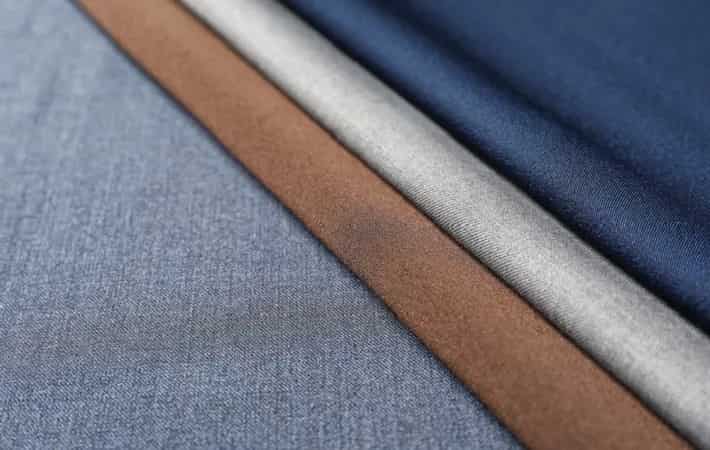
-Production of polymer auto components in Russia is localised by almost 50% – NPP POLYPLASTIC
In the near future, the total volume of use of local compounds will approach 50% and about 70% of the total Russian volume will fall on NPP POLYPLASTIC, the company said in a statement. Petrochemicals Microbial Control Automotive
Today, almost every car that is manufactured in Russia has parts made from domestic polymer composite materials.
“Russian raw materials are used in the production of models of the Renault-Nissan-Avtovaz, Volkswagen, Skoda, Peugeot-Citroen, Hyundai, Kia, Kamaz, GAZ, UAZ alliance. 70% of the total Russian volume is made by NPP “POLYPLASTIC”, – noted Ekaterina Smirnova, deputy director for sales of the trading house “Polyplastic”.
Today, Russian manufacturers of raw materials for auto components in industrial volumes are producing a new brand assortment for these brands. For example, “Polyplastic” produces materials for the manufacture of parts for the bumper group and engine compartment of the new Volkswagen Polo and Skoda Rapid, the company is a strategic partner of Peugeot-Citroen in Russia, nominations for new projects of the Renault-Nissan-Avtovaz Alliance have been received.
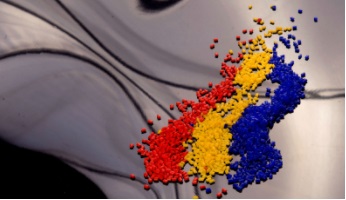
Embedding catalysts inside of plastics affords accelerated chemical modification with programmable latency and pathways. Nanoscopically embedded enzymes can lead to near
complete degradation of polyesters via chain-end mediated processive depolymerization. Petrochemicals Microbial Control Automotive
The overall degradation rate and pathways have a strong dependence on the morphology of semi[1]crystalline polyesters.
Yet, most studies to date focus on pristine polymers instead of mixtures with additives and other components despite their nearly universal uses in plastic production.
Here, additives are introduced to purposely change the morphology of polycaprolactone (PCL) by increasing the bending and twisting of crystalline lamellae.
These morphological changes immobilize chain-ends preferentially at the crystalline/amorphous interfaces and limit chain-end accessibility by the embedded processive enzyme. Petrochemicals Microbial Control Automotive
This chain end redistribution reduces the polymer-to-monomer conversion from >95% to less than 50%, causing formation of highly crystalline plastic pieces including microplastics.
By synergizing both random chain scission and processive depolymerization, it is feasible to navigate morphological changes in polymer/additive blends and to achieve near complete depolymerization.
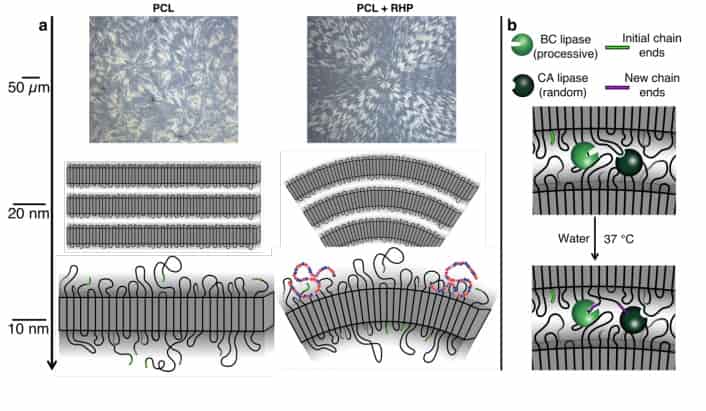
–After 7 years, FACT all set to restart caprolactam production
Petrochemical is used as raw material for host of products
The public sector Fertilizers and Chemicals Travancore (FACT) is slated to restart caprolactam production later this week after a gap of more than seven years, making the event a landmark in the history of the company. Petrochemicals Microbial Control Automotive
Restarting caprolactam production promises to add about ₹600 crore to ₹700 crore to the turnover of the company. Caprolactam, a petrochemical product, basically goes into production of Nylon-6, which is a raw material for tyre cords, fishing nets, filament yarn, engineering plastics, and a host of other products.
With Gujarat State Fertilizer Company and FACT being the only producers of caprolactam in the country, demand for the product is high, said FACT sources on Wednesday. They added that the company expected to sell most of its products in the domestic market, considering its reputation as a quality producer.
Caprolactam production came to a halt at FACT in October 2012 with the cost of benzene and liquid fuel naphtha going up significantly, making caprolactam production unviable. FACT then shifted to natural gas in 2013. However, the cost of the new feedstock continued to rule high, preventing restarting of caprolactam production. Petrochemicals Microbial Control Automotive
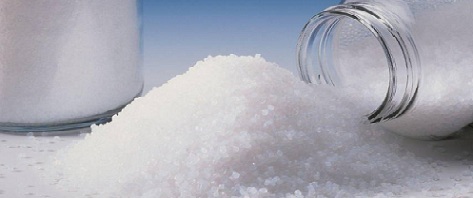
-Borouge to triple polyolefin output
Abu Dhabi-based petrochemical maker Borouge Pte Ltd. will more than triple the production of polyolefins, used for making plastics, to almost two million tonnes per year (tpy) in five years, the company said yesterday.
Abu Dhabi-based petrochemical maker Borouge Pte Ltd. will more than triple the production of polyolefins, used for making plastics, to almost two million tonnes per year (tpy) in five years, the company said yesterday.
Borouge a joint-venture between Denmark-based petrochemicals group Borealis and Abu Dhabi National Oil Co will add 540,000-tpy of polyethylene and 800,000-tpy of polypropylene to the current complex, Chief Executive Hubert Puchner said.
The $1.2 billion petrochemical complex in Ruwais, Abu Dhabi, now has a capacity of 600,000-tpy of the feedstock ethylene and 600,000-tpy of polyethylene, after the company already expanded its polyethylene capacity in March this year from 450,000 tpy.
“We think polypropylene growth is quite robust, quite sustainable. Feedstock propylene may be a bit shorter than ethylene,” Puchner told a news conference in Singapore. Petrochemicals Microbial Control Automotive
HSBC is the financial adviser for the expansion project, Puchner said, but declined to elaborate on the size of investment.
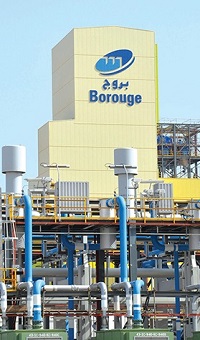
-UK set to ban single-use plastic permanently soon
The UK is set to ban all single-use plastic in a bid to reduce the pollution being spread by these cutlery items. Petrochemicals Microbial Control Automotive
As per orders, all single-use plastic plates, cups, cutlery items and the polystyrene cups will now be completely banned in the UK.
The decision was taken after experts stated that an average person uses 18 throwaway plastic plates and 37 single-use knives, forks and spoons annually, as per ministers. However, the plastic products are made with better durability. Due to this, millions of birds and more than 100,000 sea mammals and turtles die every year.
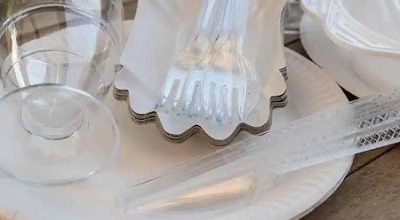
Forthcoming events list
—SEPTEMBER 2021—
Decorative Surfaces
1–3 September 2021; Munich, Germany
Tim Phillips, Managing Director, IMI Europe Ltd; Tel: +44 (1223) 236920; tim@imieurope.com; https://imieurope.com/decorativesurfaces2021-introduction
Emergency Services Show
7–8 September 2021; Birmingham, UK
David Brown, Event Director, Broden Media Ltd; Tel: +44 (20) 8947-9177; davidbrown@brodenmedia.com; http://www.emergencyuk.com
International Composites Summit: Reinventing the Global Supply Chain to Enable a Sustainable Future
8–9 September 2021; London, UK
Composites UK; Tel: +44 (1442) 817502; info@compositesuk.co.uk; https://www.internationalcompositessummit.com
Istanbul Textile Machinery Fair
8–11 September 2021; Istanbul, Turkey
Yusuf Akbolat, ECR Fuarcılık Ltd Sti; Tel: +90 (212) 573-0662; Fax: +90 (212) 573-0682; yusuf@ecrfuar.com.tr; https://www.tmeexhibition.com/en/homepage
Nonwovens Introduction
14 September 2021; Online Petrochemicals Microbial Control Automotive
Anaëlle Schütz, EDANA; Tel: +32 (2) 740-1811; anaelle.schutz@edana.org; https://www.edana.org/trainings/nonwovens-learning-cycle/nonwovens-intro…
Advanced Materials & Technology for the Space Sector (SpaceAM)
14–15 September 2021; Leicester, UK
Sue Keighley, Director, Fluency Marketing; Tel: +44 (1246) 792003; sue.keighley@fluency.marketing; https://advancedmaterials.events/advanced-materials-events/space-am
Elementary Nonwovens Training
14–15 September 2021; Cary, North Carolina, USA
Tracie Leatham, INDA (Association of the Nonwoven Fabrics Industry); Tel: +1 (919) 459-3726; tleatham@inda.org; https://www.inda.org/education/elementary-training.php
Aircraft Interiors Expo
14–16 September 2021; Online
Polly Magraw, Event Director, Reed Exhibitions; Tel: +44 (20) 8439-5138; aixoperations@reedexpo.co.uk; https://www.aircraftinteriorsexpo.com
Heimtextil Russia
14–16 September 2021; Moscow, Russia
Ekaterina Tydykova, Show Director, Messe Frankfurt RUS; Tel: +7 (495) 649-8775, x. 116; ekaterina.tydykova@russia.messefrankfurt.com; https://heimtextil-russia.ru.messefrankfurt.com
Techtextil Russia
14–16 September 2021; Moscow, Russia Petrochemicals Microbial Control Automotive
Oksana Anikeeva, Director Techtextil Russia, Messe Frankfurt RUS; Tel: +7 (495) 649-8775, x. 125; Fax: +7 (495)649-8785; Oksana.Anikeeva@russia.messefrankfurt.com; https://techtextil-russia.ru.messefrankfurt.com
Defence & Security Equipment International (DSEI)
14–17 September 2021; London, UK
Clarion Events; Tel: +44 (20) 7384-7770; Fax: +44 (20) 7384-7773; DSEI@cmsstrategic.com; https://www.dsei.co.uk
Petrochemicals Microbial Control Automotive
